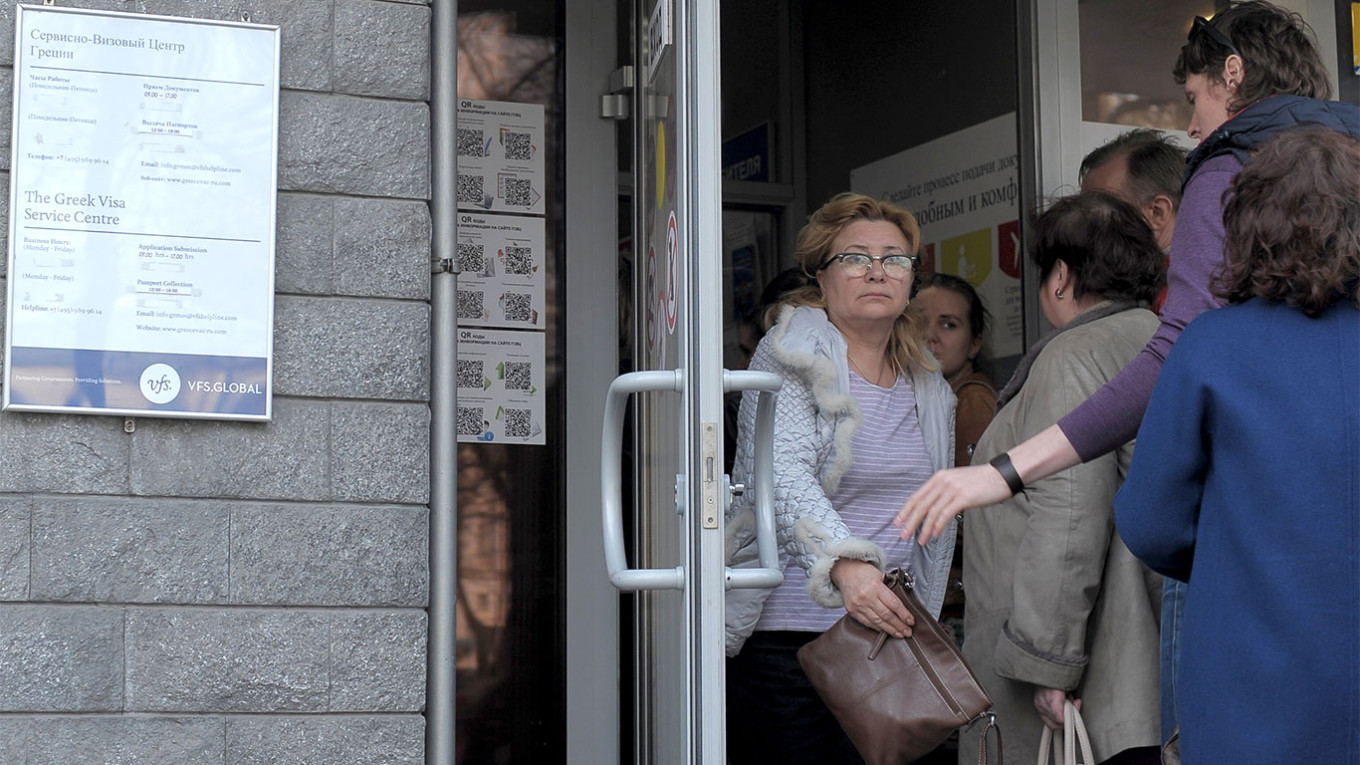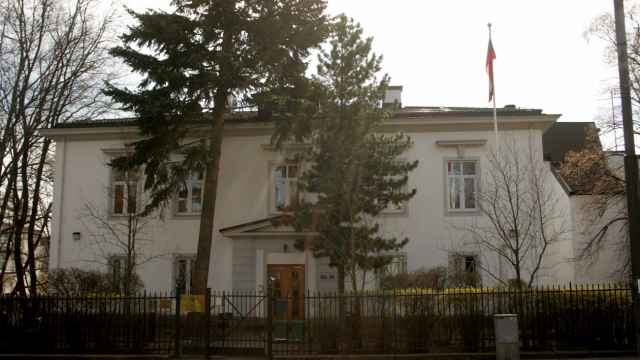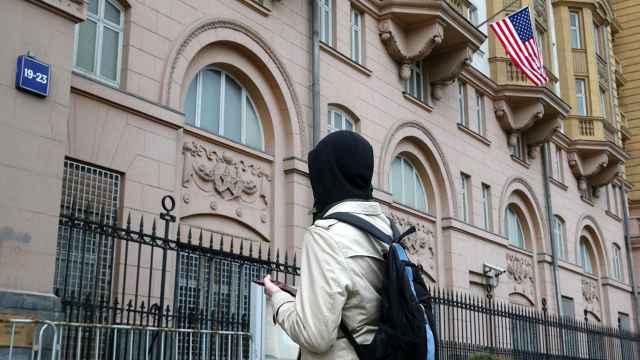Russians are facing longer-than-normal waiting times for Schengen visas as tit-for-tat diplomatic expulsions have left European embassies in Moscow short-staffed and demand for summer travel surges.
Limited appointment slots are available at most embassies’ visa centers, with all slots at the visa centers of France, Greece and Spain fully booked for July, according to travel agencies interviewed by the RBC business daily Monday.
Russian tourism agencies worry that European visa centers have too few employees to process Russians’ documents, RBC reported.
“Unexpected delays in the processing of your visa application and return of your passport may occur,” the visa application center for Greece said on its website.
It linked the limited availability of appointments to “a temporary shortage of visa application processing staff at the Greek Consulate in Moscow.”
Last month, Russia expelled eight Greek diplomats over what it called the latter's "confrontational course" toward Moscow.
The Spanish visa center in Russia offers only around 500-600 appointment slots per day, Lilia Feoktistova, the director of a Russian travel agency, told RBC.
The French visa center said that “high demand” was behind delays in the visa application process.
In May, Russia’s Foreign Ministry expelled dozens of French and Spanish diplomats in a "retaliatory" move for similar expulsions of Russian diplomats following the invasion of Ukraine.
Since the start of the Kremlin’s invasion in February, a number of Schengen countries, including the Czech Republic, Latvia and Estonia, have stopped issuing tourist visas to Russian citizens.
The Netherlands also stopped issuing visas, except for humanitarian visas and temporary residence permits, to Russian citizens following expulsions of its diplomats.
Much of Europe has closed its airspace to Russian airlines and vice versa due to the war in Ukraine, meaning travelers must fly to cities like Istanbul or Dubai before continuing on to Europe.
Russians were granted around 4 million Schengen visas in 2019 before the Covid-19 pandemic, or about one-quarter of all Schengen visas issued worldwide, RBC reported, citing European Union data.
A Message from The Moscow Times:
Dear readers,
We are facing unprecedented challenges. Russia's Prosecutor General's Office has designated The Moscow Times as an "undesirable" organization, criminalizing our work and putting our staff at risk of prosecution. This follows our earlier unjust labeling as a "foreign agent."
These actions are direct attempts to silence independent journalism in Russia. The authorities claim our work "discredits the decisions of the Russian leadership." We see things differently: we strive to provide accurate, unbiased reporting on Russia.
We, the journalists of The Moscow Times, refuse to be silenced. But to continue our work, we need your help.
Your support, no matter how small, makes a world of difference. If you can, please support us monthly starting from just $2. It's quick to set up, and every contribution makes a significant impact.
By supporting The Moscow Times, you're defending open, independent journalism in the face of repression. Thank you for standing with us.
Remind me later.






